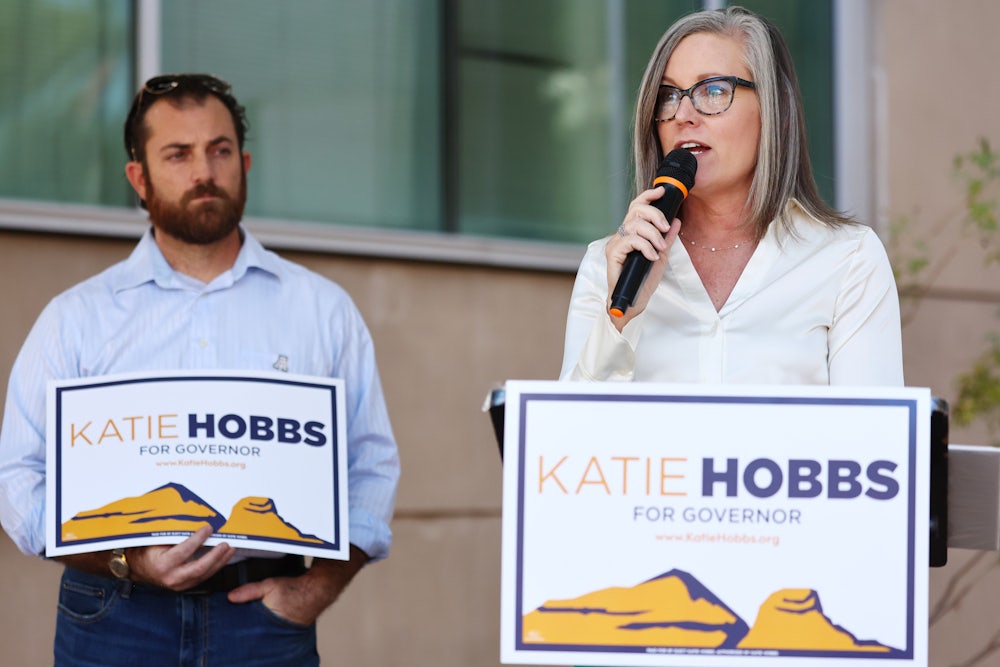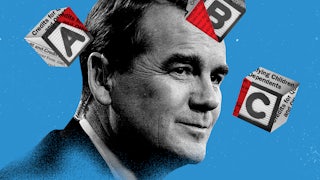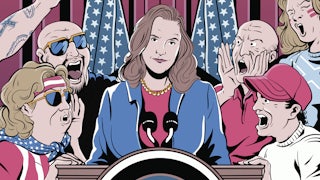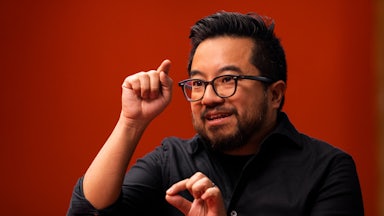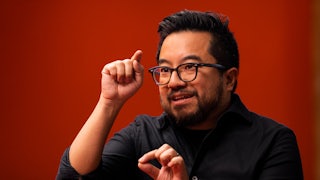Once politics, especially on the congressional level, was an amateur sport.
In 1948, Jerry Ford, a little-known Grand Rapids lawyer, knocked off an incumbent Republican in a Michigan House primary with an all-volunteer campaign run by a college fraternity brother. The Ford headquarters was a Quonset hut in a department store parking lot, and the campaign (with the candidate’s brother as treasurer) ended up spending the 2022 equivalent of $88,000. That was the norm in sleepy races until the late 1970s.
By the end of the twentieth century, every contested campaign had become professionalized. Early morning conference calls featuring the campaign manager, the media consultant, the pollster, the communications director, the fundraising consultant, and various strategic advisers became the new norm.
The 2022 midterm campaigns—with spending on TV ads alone likely to come close to $10 billion—have become a consultant’s dream. Almost everything spontaneous has been drained out of American politics. Now campaigns are almost completely waged with dueling 30-second spots in which the candidate is merely a bit player who often says nothing more than, “I approve this message.”
Candidates—especially right-wing Republicans—shun the traditional media as they largely campaign on conservative talk radio and safe venues such as Fox News and Newsmax. Public campaign schedules, which used to clog inboxes, are now often as closely guarded as all the nuclear secrets that are not housed at Mar-a-Lago. Safe spaces are what all campaigns desire since, in an age when everyone is a videographer, an off-key joke or a snappish response to a voter can be plastered all over Twitter and YouTube within three minutes.
In years past, debates were often the wild card in statewide and House campaigns. Candidates were on their own for a grueling 60 or 90 minutes without a single handler at their side. As a result, the preparations for these spontaneous events were arduous, with days of rehearsing would-be zingers and succinct answers to presumed questions. And if a high-profile debate went badly, an army of spokespeople, spinners, and strategists would immediately jump on every media outlet this side of Vatican Radio to do damage control by loudly denying the obvious.
In 2022, consultants in both parties have stumbled on the simplest solution to debate risk—avoid them. While precise statistics are difficult to nail down, an analysis by Monica Potts at FiveThirtyEight “found that the 2022 cycle has seen fewer debates between candidates for Senate and governors than previous cycles.” While Republicans disproportionately tend to be skittish about debates, there is a bipartisan strategy of avoidance. In Arizona, beleaguered Democratic gubernatorial candidate Katie Hobbs has refused to debate her election-denying, TV-poised opponent, Kari Lake. Even though the Nevada Senate race between Democratic incumbent Catherine Cortez Masto and GOP challenger Adam Laxalt remains among the tightest in the country, the possibility of debates broke down with mutual acrimony over the ground rules.
Make no mistake, debates can be substantively and artistically awful. As they hyperactively jumped topics, the moderators during the only Georgia debate between incumbent Senator Raphael Warnock and ill-prepared Republican Herschel Walker announced, “We are moving on” more often than explorers Lewis and Clark. During last Thursday’s New Hampshire Senate debate, Republican Don Bolduc began his opening statement by hyperbolically declaring, “Everything has doubled—oil, gas, food, everything. And,” he bluntly said, pointing at Democratic incumbent Maggie Hassan, “it’s her fault,” as if the president and the rest of Congress didn’t exist.
But debates, for all their flaws, can reveal character. During his Pennsylvania Senate face-off last week with John Fetterman, who is recovering from a stroke, Mehmet Oz was at his smarmiest as he patronizingly oozed, “John, obviously, I wasn’t clear enough for you to understand this.” Occasionally, consultant-driven debate strategies can even yield insights. The lone debate (shown on a cable rather than a broadcast network) between New York Governor Kathy Hochul and GOP challenger Lee Zeldin asked the candidates to pose each other a question. Instead of trying to set up a “gotcha” moment, Hochul’s six-word question to Zeldin was devilishly simple, “Was Donald Trump a great president?” It was a classic lose-lose query. Beholden to Trump for his nomination, Zeldin couldn’t say “no.” Instead, the Long Island congressman recited a list of Trump’s supposed accomplishments, a gesture that was unlikely to win him votes in a state where the former president is deeply unpopular.
There are, of course, other reasons beyond all-powerful political consultants to explain the shortage of debates and the increasing likelihood that candidates will be shrouded in bubble wrap. The pandemic upended most of the traditions of campaigning in 2020 and may have lessened the expectation of voters to see candidates out handshaking. As the attack on Paul Pelosi sadly illustrates, security concerns in a bitterly divided America now shape campaigning. With fewer persuadable voters in each election season, the political benefits of old-fashioned speechmaking may also be eroding. And finally, the collapse of local newspapers has made it much harder for candidates to win media coverage for their regular forays with the voters. In the old days, the Small Town Daily Bugle would have eagerly covered a candidate’s speech to the local Rotary Club, but these days the paper’s lone remaining reporter doesn’t have time to leave his or her home computer. And good luck in 2022 getting a routine stump speech onto cable TV or mentioned in The New York Times.
Still, the ultimate truth about the 2022 elections is that the stakes are so high that the candidates themselves cannot be trusted with their own campaigns. That’s why this is such a banner and lucrative year for campaign consultants in both parties.
